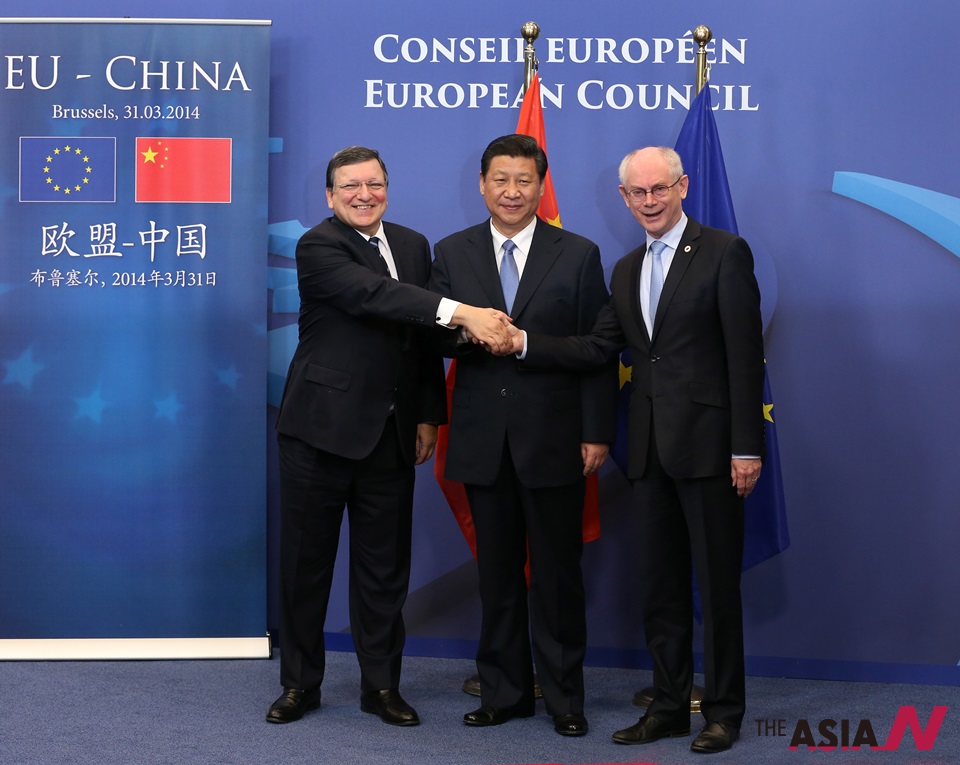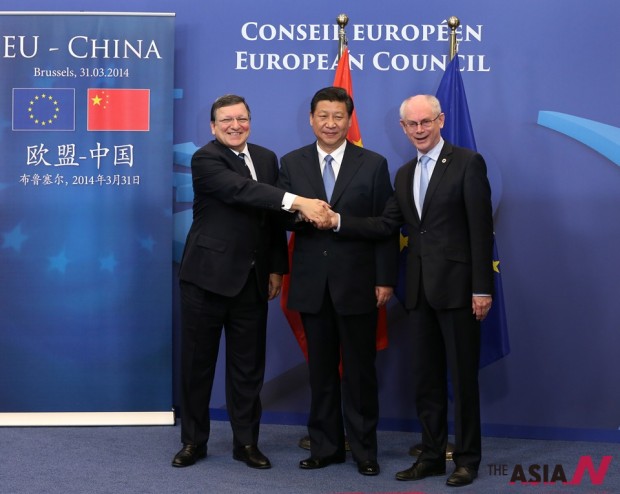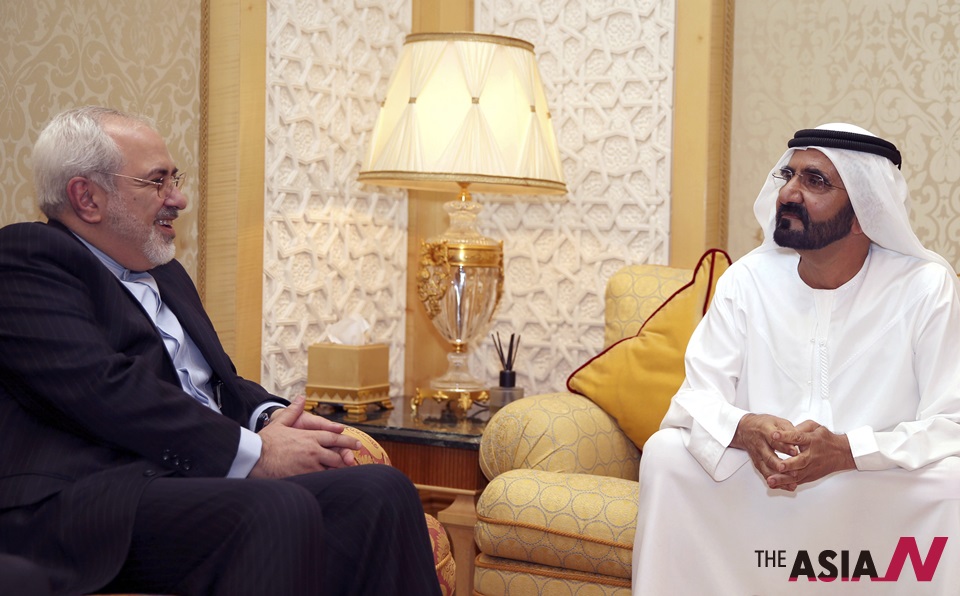
[Asia Round-up] Xi Jinping’s visit to Europe– economic diplomacy?

For the European Union, what was truly remarkable about Xi Jinping’s four-nation tour of Europe (The Netherlands, France, Germany and Belgium) was the efforts that the Chinese President made to visit the key EU institutions in Brussels and to meet with its top leaders – President of the European Council Herman van Rompuy; President of the Commission Jose Manuel Barroso; and President of the European Parliament, Martin Schultz. This was perhaps in recognition of the fact that the EU is still the biggest trading bloc despite the recent financial and debt crisis, and the renewed importance of the EU as an economic partner as the latter staged a slow but steady economic recovery. The EU has also in recent years uped its game in pursuit of Free Trade Agreements (FTAs) with key economic partners, concluding the very first FTA in Asia with Korea, and now into the fifth round of negotiations with Japan. What must have worried China is the decision taken in February in 2013 by the EU and US to start negotiations for a comprehensive Transatlantic Trade and Investment Partnership (TTIP) agreement.
Some economists see the TTIP as one of the ways out of economic woes, hoping that further trade and investment liberalization between the two largest economies will stimulate economic growth and create more jobs. However, for some analysts, the TTIP is not just about the economic gains. They also see a bigger strategic purpose of the TTIP in strengthening the US-EU axis vis-à-vis China and other key emerging powers and the significance it has for the future world order in cementing the regulatory powers of the west.
The Chinese have also been eyeing an FTA with the EU, its number one trading partner. In turn, China is the EU’s number two trading partner after the US. Bilateral trade in goods between the EU and China is more than €1 billion every day. However, not all is rosy with EU’s concern over their trade deficit, and disputes over dumping. The most recent measures taken by the EU over the dumping of Chinese solar panels, and threats to investigate into Chinese dumping of telecoms equipment, were met with tit-for-tat measures by the Chinese threat over wine and polysilicon. Ahead of Xi’s visit however, the tit for tat measures were dropped, and in turn, the EU also announced that it would drop the anti-dumping and anti-subsidy investigations into Chinese telecoms companies, Huawei and ZTE.
Trade in services between the EU and China also remains low in part due to the fact that the Chinese market remained relatively protected. European companies operating in China also faced various regulatory barriers. Similarly, Chinese investments to the EU, while still very small compared to the existing stock of FDI in the EU, has been increasing.
Yet, this increase has not necessarily been met with universal welcome in the EU. To try and level the playing field in the area of investment and address an array of issues and concerns, the EU and China during its summit meeting in November 2013 agreed to start negotiations for a comprehensive EU-China Investment Agreement. The Agreement will provide for progressive liberalisation of investment and the elimination of restrictions for investors to each other’s market.
Xi Jinping, in his visit to the EU and selected member states, astutely took the occasion to emphasise the importance of trade and investment and pushed for strengthening the economic partnership between China and the EU.
He was clear in his message throughout that as the Chinese economy undergoes reform there are clear opportunities for European involvement that can be mutually beneficial. For instance, in Dusseldorf, Germany, he made the point that “China needs German quality, while Germany’s growth requires Chinese market and China speed” (Xinhuanet 2014) and called on the businessmen present to optimise trade structure, develop targeted and complementary products that meet market demand, and increase the proportion of technology and service in bilateral trade” (Xinhuanet 2014).
The countries that Xi Jinping chose to visit in this were also telling. The Netherlands, France and Germany are all in the top five in terms of trade with and investments into China amongst all the 28 EU member states. He was able to play on the different strengths of each of country and match them with the needs of China – inking a deal on dairy products and food safety with The Netherlands, emphasizing the historical and cultural links with France while signing deals for Airbus, and had talks on cooperation between Chinese automaker Dongfeng and France’s Peugeot. And in Germany, recognising the dominant position of Germany in the EU, he made a point to call on Germany to work with China to build the Silk Road economic belt, to better connect the Asian and European markets. He visited the Port of Duisburg, and witnessed the arrival of a cargo train travelling the Chongqing-Xinjiang-Europe international railway arriving from Chongqing to Duisburg. Deals were also signed with Daimler, Bayer, Siemens and BMW.
The visit to the EU institutions in Brussels was a clear recognition of the exclusive competence of the Commission over trade matters and the increased power of the Parliament in scrutinising and ratifying international agreements. Hence, if China hopes to have a FTA with the EU, it is absolutely necessary to have the EU’s institutions on its side. He also made a point to note the EU’s major trade negotiations and the upcoming European elections. The latter is of concern as there were signs that far right and far left groups would made significant gains and this may in turn sour further the mood of EU towards free trade.
In Belgium, Xi also made a point to visit the Chinese-owned Volvo factory in Ghent to showcase a concrete example of Chinese investments. China’s car company Geely bought Volvo nearly four years ago and since then production at the Ghent factory, the biggest car manufacturing plant in Belgium has increased steadily.
Xi Jinping rounded up his tour with a visit to the College of Europe in Bruges where he gave a speech reiterating the importance of China and the EU working together for peace and prosperity. He devoted much of this speech on the long history and civilisation of China and cautioned that if China is to be understood, one need to have a proper understanding of China’s history, culture, the Chinese way of thinking and the profound changes taking place in China today. He called for a long term perspective on EU-China relations with genuine respect for diversities and mutual learning.
Xi Jinping’s visit to Europe was focused on economic partnership to be underpinned by cooperation in science, technology and innovation, and education and cultural exchanges. Chinese continues to value European technological achievements and sees the EU and its member states as important partners in helping Chinese through its much needed economic reforms. But at the same time, he was quick to emphasise the mutual benefits of the EU-China partnership, and that while China would also engage in political dialogue and mutual learning, China would not copy the political system and development model of other countries. Commentary by Dr Yeo Lay Hwee, Director of the EU Centre in Singapore




